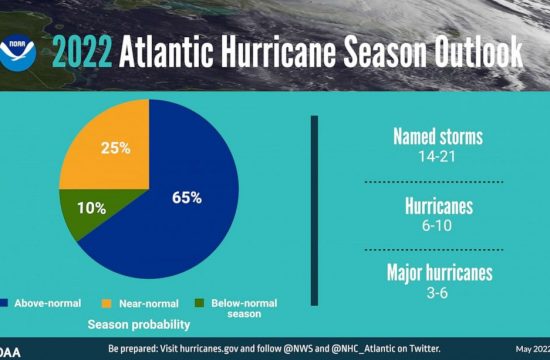The beleaguered biotech firm Emergent BioSolutions will face a congressional inquiry Wednesday, scrutinized for what investigators say are the “serious deficiencies” in their manufacturing that led to up to 15 million doses’ worth of COVID-19 vaccine ingredients being compromised and disposed of because of cross-contamination.
Top Emergent executives Fuad El-Hibri, the company’s founder and executive chairman, and Robert Kramer, its chief executive officer, will appear on Capitol Hill as part of a congressional investigation into their company’s manufacturing issues, and whether the firm leveraged its ties with the Trump administration to improperly secure their pandemic contract worth millions of dollars.
Emergent has pointed to its longstanding record working with federal leaders of all political stripes, and has emphasized the urgency of the pandemic setting — that the “rapid scale up of manufacturing had never been done before in the history of the planet,” a spokesperson said.
“Emergent has performed many vital missions for the United States Government since its founding in 1998, and especially since the nation focused on the critical importance of biodefense after the September 11th terrorist attack and subsequent anthrax attacks,” a spokesperson said in a statement to ABC News Wednesday morning. “We look forward to clarifying misconceptions and addressing the Committee’s concerns. At this time, our focus is on the path forward to release drug substance currently under evaluation, to resume production, and to do our part to help strengthen the global supply chain for Johnson & Johnson’s COVID-19 vaccine.”
The House Select Subcommittee on the Coronavirus, led by Rep. Jim Clyburn, D-S.C., and the House Committee on Oversight and Reform, led by Rep. Carolyn Maloney, D-N.Y. announced last month that they were opening an investigation into the company. On Wednesday morning, ahead of Kramer and El-Hibri’s appearance on the Hill, the committee released preliminary findings that were expected to be the subject of questioning as the pair faces lawmakers.
“The committees’ investigation raises troubling new questions about the lucrative contract Emergent received under the Trump Administration, the company’s failure to address manufacturing problems that led to the destruction of millions of desperately needed coronavirus vaccine doses, and large bonuses paid to top executives despite these failures,” according to a staff memo distributed ahead of the hearing.
The one-dose Johnson & Johnson vaccine relies on an essential viral vector component manufactured by Emergent and other international facilities. Emergent is one of the few United States facilities capable of producing that crucial ingredient, and is the main U.S. supplier in Johnson & Johnson’s U.S. production chain. Emergent was expected to deliver millions of doses’ worth of that key ingredient — but currently none of it can leave the company’s Baltimore facility while production is paused due to cross-contamination issues.
The recent cross-contamination at the Baltimore plant is not the first time Emergent has had to answer questions about its quality control, however.
ABC News has previously reported on the company’s longstanding quality control issues, itemized in federal inspection reports over the course of more than a decade, including leaks and cracks in critical equipment, mold, peeling paint, stained ceiling tiles, inadequate personnel training, and IT infrastructures left vulnerable to data compromise, which were observed by investigators on site and flagged for immediate fixing.
In a private report in June of 2020, an adviser to the federal government’s Operation Warp Speed identified key “risks” in relying on Emergent’s Baltimore facility to handle vaccine ingredient production, saying that Emergent “will have to strengthen the change control process, systems audit trails, and quality oversight,” which would “require significant resources and commitment.”
“Emergent was aware of the problems and failed to take sufficient action,” the House subcommittee says in its preliminary report, pointing to what it calls the “scathing inspection report” issued by the FDA as recently as late April 2021.
Despite the litany of quality control issues, Emergent won a $628 million contract from the Trump administration in June of 2020 to boost domestic vaccine manufacturing capabilities, making it one of the federal government’s most important partners in manufacturing vaccines in the U.S.
Emergent says that identifying deficiencies is part of the regulatory process — especially for the “difficult and complex” products they make — and that the company is under unprecedented pressure due to the pandemic.
“There are many intricate and detailed steps required,” Emergent CEO Robert Kramer said on a late April call with investors. “We took a process that normally takes years, and condensed it into months…. I’m proud of the fact that we jumped into this and did everything we could, everything we can right now, to stand up and stabilize this supply chain. And we would absolutely do it again.”
Lawmakers on Wednesday are expected to probe the involvement of Dr. Robert Kadlec, a former senior adviser to President Donald Trump, in awarding Emergent the coronavirus vaccine contract. The committee memo said that Kadlec personally vouched for Emergent and “requested in August 2020 that Emergent’s contract receive a ‘priority rating.'”
Before joining the Trump administration, however, Kadlec accepted more than $360,000 in consulting fees from Emergent, according to documents released by the committee.
“These documents raise further questions about Dr. Kadlec’s role awarding significant contracts to Emergent during the Trump Administration,” the committee wrote in the staff memo.











